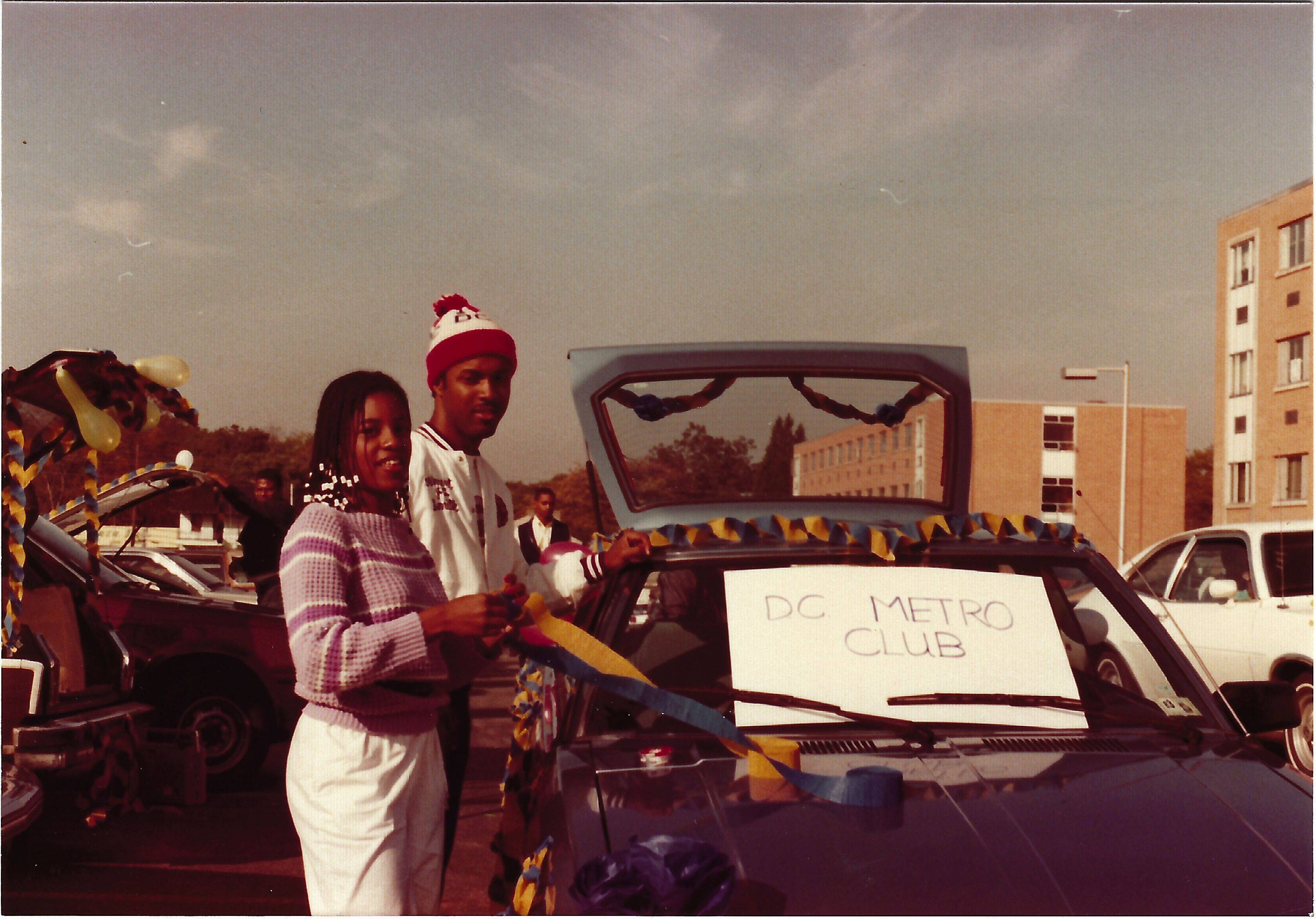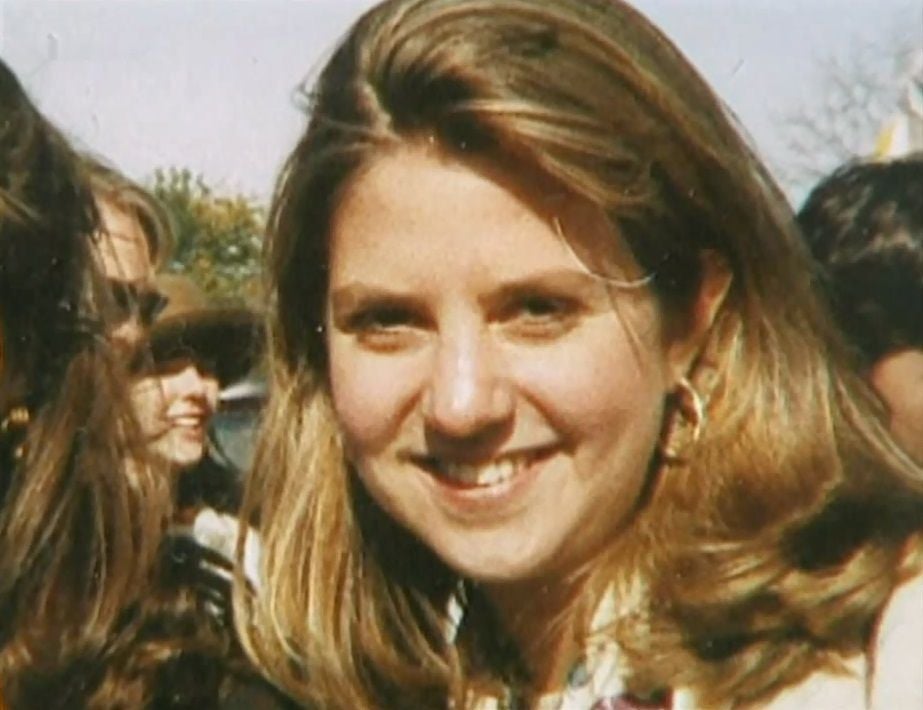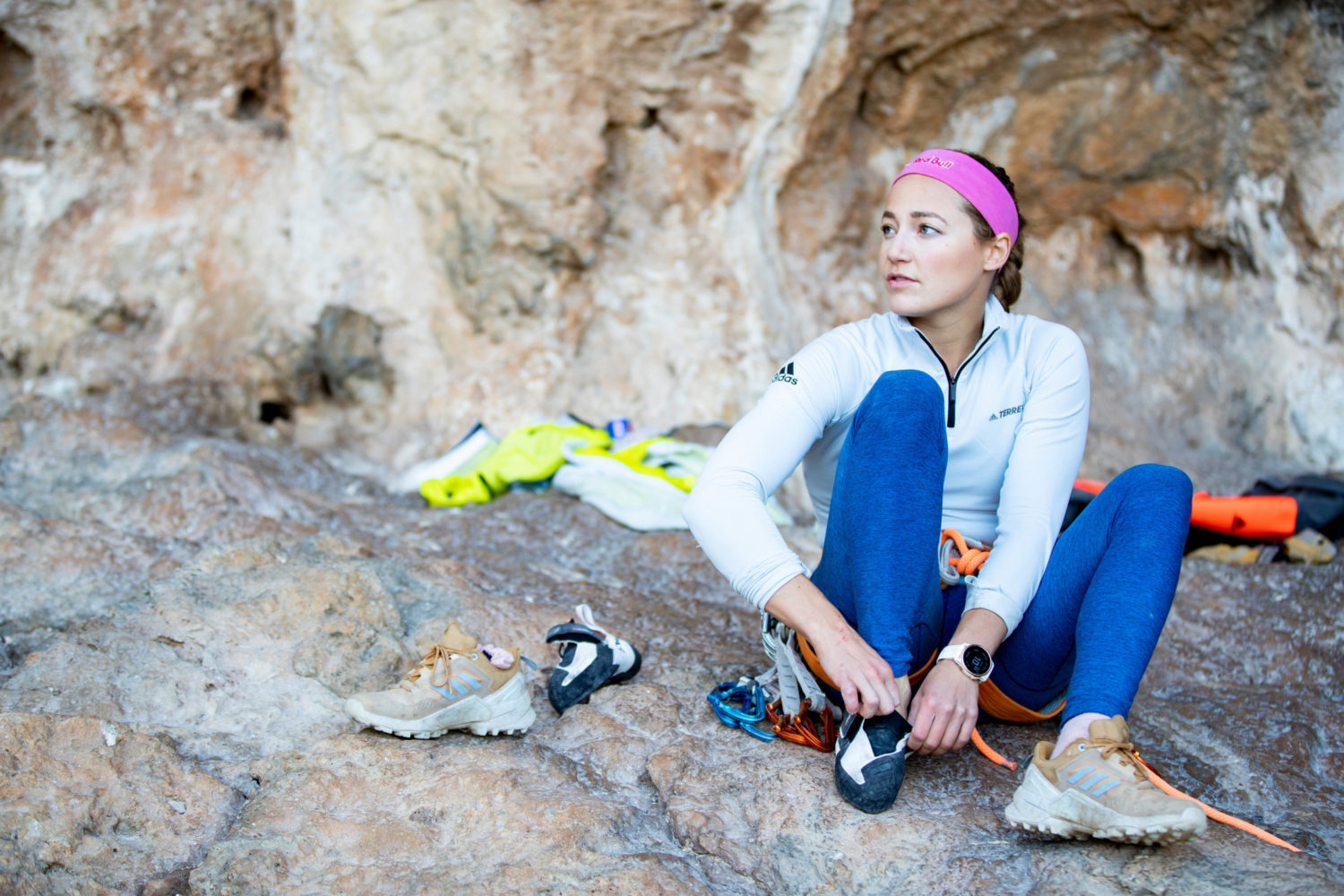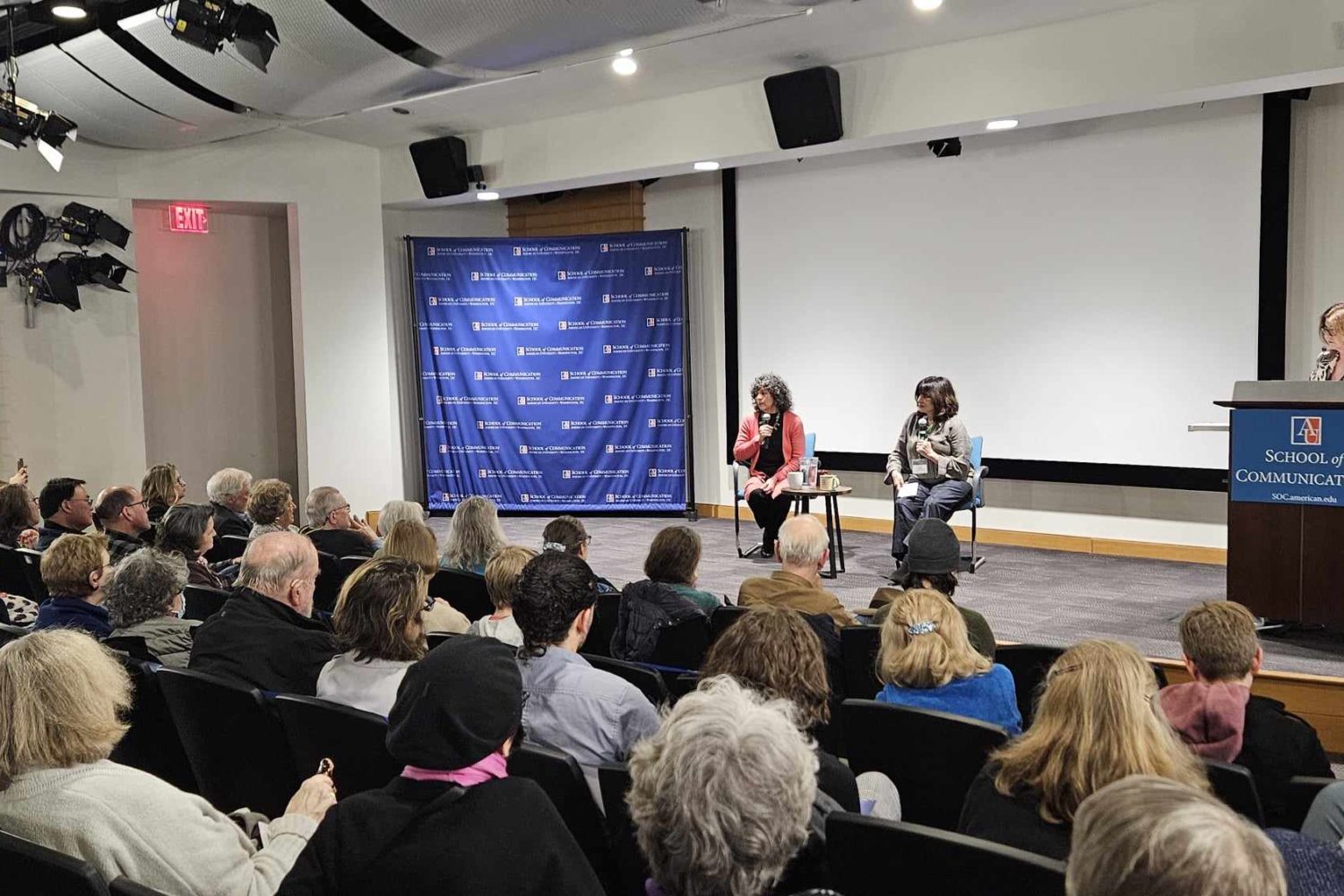Last week, Hulu released the documentary Freaknik: The Wildest Party Never Told, which tells the story of the Atlanta event that evolved from a club picnic to a beloved college music festival to an uncontrollable city-wide party. Although Freaknik is closely associated with Georgia, the documentary reveals that the original event was started by a group of college students who grew up in Washington, DC. Three of those founding members, Monique-Tolliver Logan, Amadi Boone, and Emma Horton, spoke to Washingtonian about Freaknik’s origins and how their inclusion in the documentary brought them back together as a group.
During the 1982-1983 school year, Tolliver-Logan, Boone, and Horton attended college in Atlanta, and they all served on the governing board for the DC Metro Club of the Atlanta University Center (a consortium of HBCUs in Southwestern Atlanta including Spelman and Morehouse Colleges). The DC Metro Club was one of many such groups run by people who had grown up in the same place. These state clubs helped students find camaraderie, provided ride-share services for trips home, and, of course, threw great parties. “We always tried to bring DC culture, including go-go music, to the other students in Atlanta—and we were known at that time as the state club with the biggest and best parties,” says Boone, who was president of DC Metro at the time.

Boone and his vice president, Tony Towns, came up with the theme “The Return of the Freak” to represent the year’s events, promising to introduce Atlanta to funky dance “The Freak.” “That dance was very particular to Washington, DC culture at the time, and we really wanted to share it with other students,” Tolliver-Logan says.
Ahead of spring break 1983, DC Metro Club leadership brainstormed activities for students who were staying on the Atlanta campus. “For many of us, going home or going down to Florida and spending money on hotel rooms just wasn’t even conceivable, but we still wanted to make it fun,” Boone says. The club decided to turn its annual spring picnic into a larger event featuring a DJ, with drinks and food for sale. This outdoor get-together, originally spelled “Freaknic” as a portmanteau of “the Freak” and “picnic,” was very popular, drawing in crowds of students.
The event’s founders look back at the 1983 Freaknic fondly. “For me, as a freshman, I was just amazed at how huge it was,” Tolliver-Logan says. “It was just a really big crowd of students having a great time. We even ran out of hot dogs, but the party kept going.”
When other students came back from their beach trips and heard about what they missed out on, people quickly started asking for Freaknic to return. A word-of-mouth campaign made Freaknic more popular year after year, expanding into an annual music festival that HBCU students from around the country would make the trip for. By the end of the decade, the festival was a pop culture staple, even being referenced on the television show A Different World in 1989.
Years after its founders graduated, Freaknic was no longer associated with the AUC, and it got picked up by a series of private party promoters, one of whom eventually renamed the party with a k. Freaknik moved away from its origins as a purely collegiate event and became a city-wide party that shut down streets and clashed with Atlanta city government. The documentary goes into detail about this shift, and discusses the circumstances that eventually lead to the end of Freaknik.
When the founders learned that Hulu was working on a documentary, they knew they had to be included, and the producers were ready to work with them. “This is our story. This is our history,” Horton says.
Tolliver-Logan, Boone, and Horton are featured in the documentary along with other founding members who reminisce about the event’s origins. They say they were pleased with the way the documentary turned out and were excited that the production brought them back together. Their reunion in the film marked the first time they had seen one another in almost 40 years, and it inspired them to keep in touch. Last July, they organized a picnic in Silver Spring for Freaknic’s 40th anniversary, called “DC Metro Reunited.” “I think everyone there recognized that, before Freaknic, there was just no other event for young Black students on that scale. We felt like we started a movement,” Tolliver-Logan says.
Talking about his experience reuniting with his fellow club members, Boone says, “it was just good being back together, and acknowledging what we had done decades ago. Sometimes, you start something and it grows beyond you, but we all still felt proud of the spirit of what we created back then.” Upon the release of the documentary, Boone hosted a special screening for DC Metro Club alumni at Shanklin Hall in Northwest DC.
“I still take pride in what I call the six elements of what made Freaknic so successful: We were young, we were gifted, we were Black, we were united, we were organized, and we were educated,” Horton says. “In the beginning, it was about celebrating ourselves on our own terms.”
Today, Tolliver-Logan and Horton both work in education, the former as an education technologist in Atlanta and the latter as a school counselor in the DC area. Boone also lives in the DC area, working as a legal consultant at PPLSI. The DC Metro Reunited group is currently planning another reunion picnic for this summer. “As students, we valued service above all else, and I think that’s still true now,” Boone says. “Freaknic created its own legacy over time, but each one of us continues doing that kind of work every day.”


















